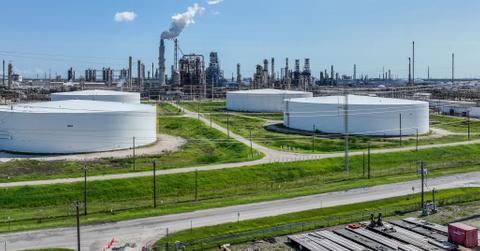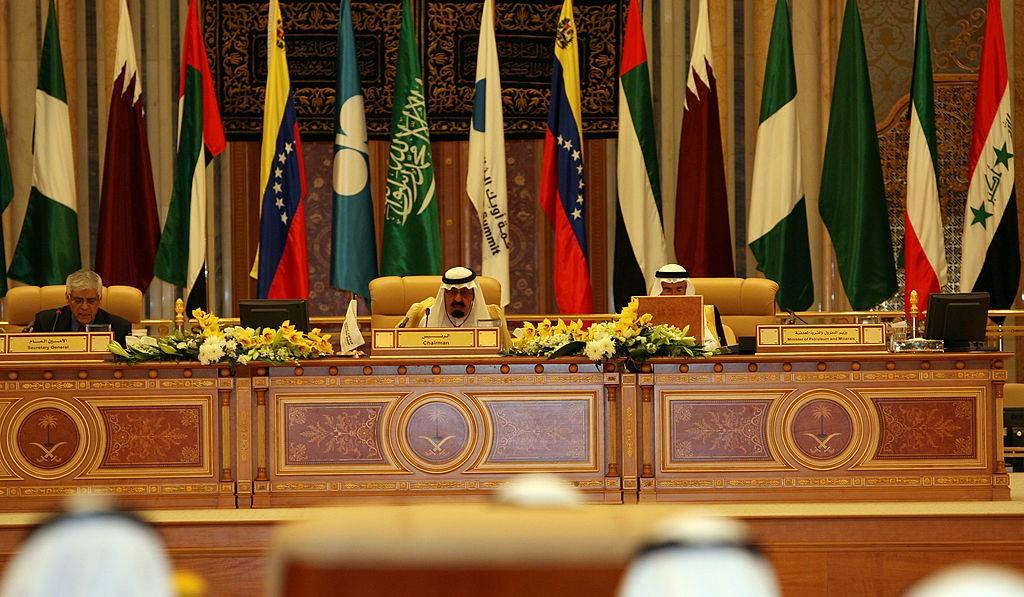OPEC Is Cutting Oil Production — Expect Higher Energy Costs This Winter
OPEC is cutting oil production, but why? Here’s what’s behind the international oil cartel’s decision. Is the decision political or based on supply and demand?
Oct. 13 2022, Published 12:32 p.m. ET
The Organization of the Petroleum Exporting Countries (OPEC) is cutting oil production, but why?
Is the decision political or based on supply and demand?
Here are the reasons behind the decision from the international oil cartel and its allies — plus what it means for oil prices across the globe.
In early October, OPEC announced that it’s cutting oil production.
OPEC and its allies, including Russia, announced in early October that it’s cutting oil production. Even though the winter season is the most demanding on oil supplies, the oil cartel’s members agreed to slash production by 2 million barrels per day.
That’s twice as much as previous estimates during the negotiation stage.
For reference, OPEC+ (which constitutes official OPEC members and their allies) contributes about 28 million barrels of oil per day, or 30 percent of total global output.
President Biden can't do much about OPEC's oil production cuts.
President Biden on Wednesday, Oct. 12 threatened consequences for OPEC in an attempt to restore production and keep costs down for Americans. These consequences could include cutting U.S. support to Saudi Arabia, hitting OPEC with U.S. sanctions or laws, and potentially more — though it seems Biden’s ability to instate consequences may actually be limited.
The event “underscores the extent to which the Biden administration has lost its ability to influence Saudi OPEC+ policy,” Torbjorn Soltvedt of risk intelligence firm Verisk Maplecroft told reporters.
Meanwhile, the Saudi Arabian government issued a statement that reads, “These outcomes are based purely on economic considerations that take into account maintaining the balance of supply and demand in the oil markets, as well as aim to limit volatility that does not serve the interests of consumers and producers.”
The statement adds that concerns of siding with Russia amid the ongoing Ukraine invasion are unfounded. It reads, “Any attempts to distort the facts about the Kingdom’s position regarding the crisis in Ukraine are unfortunate, and will not change the Kingdom’s principled position.”
Why is OPEC really cutting production?
OPEC says it’s cutting production for the simple reason of maintaining supply and demand while controlling prices. However, big oil is more complicated than that. There are undeniable political motivations in any oil negotiation.
With member countries like Saudi Arabia, United Arab Emirates, Iran, and more, political motivations may be ingrained in the oil conversation.
Together, OPEC emphasized the “uncertainty that surrounds the global economy and oil market outlooks,” ultimately defending the decision to cut production.
What will happen to energy prices?
We’re already dealing with heightened energy costs, and trimmed output ahead of the winter season will likely make the situation worse. What we do know is that White House press secretary Karine Jean-Pierre says a policy review is coming, and policy changes may occur as the U.S. weighs how to respond.
In the meantime, the U.S. will pay for tapping into its own oil reserves (someone needs to pay for those 50 million barrels, and if Biden gets his way, it won’t be Americans).


